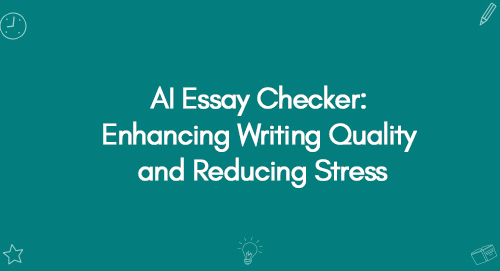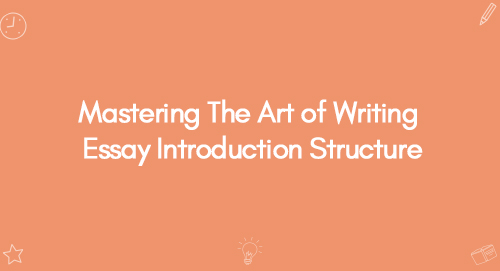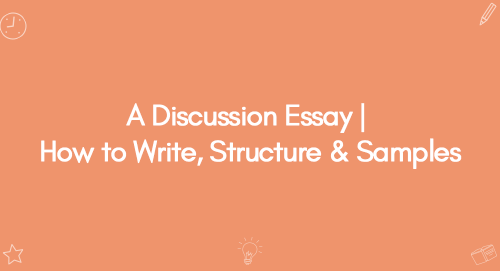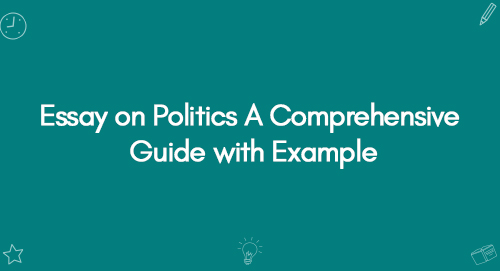Essay on Politics | A Comprehensive Guide with Example
Essay on Politics | A Comprehensive Guide with Example

Mastering the Art of Writing an Effective AP Lang Synthesis Essay | A Comprehensive Guide
January 19, 2024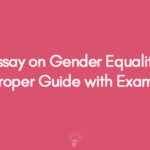
Essay on Gender Equality | A Proper Guide with Example
January 23, 2024An essay on Politics delves deeply and thoroughly into analysing political systems, ideologies, events, or trends.
In this essay, adopting a format for a political essay includes:
- Importance of crafting an engaging introduction
- Developing a clear thesis statement
- Presenting well-structured body paragraphs
- Creating an effective conclusion
- Compiling a bibliography
It is useful as a guide for you while you write an essay.
Example: 1 Academic Essay Writing
An insightful essay example is provided for review above.
What is a Political Essay?
A political essay explains, explores, and often argues for or against a specific political position. It can analyze a political situation, argue a particular issue, or reflect on a political event. A political essay aims to understand political issues. This kind of writing is an exercise in interpreting political theory, which often enters the realm of philosophy.
Five Major Parts of a Political Essay Format
Here are five main elements a political essay can contain, explained briefly below.
- Writing Introduction Part
A political essay includes an introduction. This section introduces the essay’s topic and summarises what the reader can expect in the following paragraphs. It must also “hook” the reader with an unexpected fact. The hook serves to engage readers and make them want to continue reading.
- Mention Thesis Statement
Every political essay includes a thesis statement. This is a summary of an essay. A thesis statement can be a single sentence or a few sentences. The thesis statement is part of the introduction.
- Develop your Body Section
Following the introduction, a political essay includes two or more body sections. Each section discusses a relevant point that adds to the reader’s understanding of the topic that directly supports the thesis statement or opposing perspectives.
- Drafting An Effective Conclusion
The final part of a political essay is its conclusion. The essay’s conclusion summarizes the points in its body paragraphs and ends the author’s discussion. It adds a short insight that leaves a lasting impression on the reader.
- Make a Bibliography
The bibliography lists all the sources you consulted and cited in your writing on a separate page from the essay. This credits the authors of those sources and makes it easy for readers to conduct research after reading your work.

Insightful Political Essay Example
Here is an insightful example to develop your understanding of this type of essay.
Title: The Globalization Paradox: Navigating the Complexities of Interconnected Politics
Globalization, the interconnectedness of nations through economic, cultural, and political channels, has emerged as a defining feature of the contemporary world. This essay delves into the complexities of globalization, exploring its impact on political landscapes, sovereignty, and the challenges it poses to traditional notions of governance. As the world becomes increasingly interconnected, understanding the globalization paradox becomes imperative for policymakers, scholars, and citizens alike.
Globalization is a double-edged sword, offering unprecedented opportunities for collaboration and progress while posing challenges to established political structures. On the one hand, the interconnectedness of economies facilitates the exchange of goods, ideas, and technologies, fostering economic growth and cultural exchange. On the other hand, it erodes the boundaries of traditional sovereignty, raising questions about who holds power in the global arena.
The political implications of globalization are vast and multifaceted. While international organizations and agreements promote cooperation and diplomacy, they also require nations to cede some degree of autonomy. The rise of supranational entities challenges the conventional understanding of statehood and sovereignty, with global issues such as climate change, pandemics, and terrorism requiring collaborative, transnational solutions.
The globalization paradox encapsulates the intricate interplay between interconnectedness and sovereignty, opportunities and challenges, collaboration and competition. As we navigate the complexities of this globalized era, it is essential to foster a nuanced understanding of the political implications. Policymakers must strive to develop inclusive, transparent, and accountable global governance mechanisms, acknowledging nations' diverse interests and perspectives. Only through thoughtful consideration and collaborative efforts can we hope to address the challenges posed by globalization while harnessing its potential for the betterment of humanity
Are there any Tips for Writing a Political Essay Carefully?
These tips will help you stay focused and see what to write next when you get stuck.
Use an Academic Tone
A political essay is a piece of academic writing, so avoid casual words, phrases, and sentence structures. Depending on your essay’s intended audience, explaining certain legal subjects in plain language is beneficial.
Support your Criticism
If your essay criticizes a specific politician or policy, support your criticism with statistics. Rather than making a personal attack, explain why this politician or their policies hurt the public.
Get your Thoughts Down
Write a first draft without trying to make it perfect. Get your thoughts onto the page in a logical order.
Read and Read Again
When you return to edit your work, you’ll have a fresher perspective, making it easier to spot mistakes and areas where you might need to rework some of your writing. This process is known as revising, transforming your first draft into your second draft. After completing the second draft, reread your essay to spot any mistakes you might have missed initially. This step, known as proofreading, is the last before you submit or publish your work.
Free Premier Essay Writing Topics
Essay Writing is an essential part of academics which presents the ideas, arguments, opinions, or positions of the writer regarding the topic. The writer supports his claims using facts, evidence, or survey studies.
- Clear presentation or understanding of the type of essay
- An appealing introduction with an unambiguous thesis statement
- A well-defined structure of body paragraphs supporting the thesis
A prospective conclusion with an optimistic tone
7 Pointers Checklist for Essay on Politics
Here's a checklist to ensure the completeness and quality of an essay on politics
- Clear Thesis Statement
Check if the thesis statement is presented and aligned with the essay's purpose.
- Assess Introduction
Assess whether the introduction provides sufficient background on the political topic. Is there a hook to capture the reader's attention? Look for a clear thesis statement.
3. Smooth Transition in Body Paragraphs
Check if the body paragraphs are well-organized and logically structured. Is there a smooth transition between paragraphs and ideas? Ensure the main points are supported with relevant evidence, examples, or data.
- Given Evidence and Examples
Analyses of the evidence provided are used to support relevant and credible arguments. Look for a balance between qualitative and quantitative evidence.
- An Effective Conclusion
The conclusion should effectively summarize key points and restate the thesis differently.
Think if it will leave a lasting impression or provide a call to action.
- Check for Clarity and Coherence
Ensure the language is clear, concise, and jargon-free, and sentences and paragraphs flow smoothly. There must be a logical progression of ideas.
- Engagement with Key Topics
The essay should have key political topics relevant to the essay that should be thoroughly explored. Assess If the analysis is comprehensive and well-researched.
Using this checklist, you can systematically review your essay and ensure it meets the criteria for a well-constructed and effective piece on politics.
Conclusion
Following these steps, you can craft a well-structured and compelling political essay communicating your ideas and insights on a specific political topic. General rules apply, starting from presenting the different parts of your argument in a logical order, footnoting sources used or writing a bibliography for references not included in the footnotes, avoiding plagiarism at all costs, practising proper citation and following the format prescribed.


